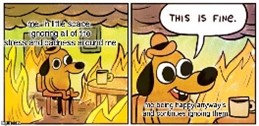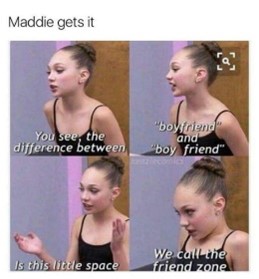Are you looking for a term to describe someone that regresses into a childlike state? If so, you could say they are transitioning into their “little space.” This post unpacks the meaning and origin of this expression.
Meaning
The expression “little space” refers to a type of mental disorder where an adult regresses into a childlike state.
The affected person may have experienced some trauma or abuse when they were young, causing them to regress into their “little space” when encountering an environmental trigger or stimulus.
A “little” is a person who undergoes the transformation into “little” behavior. Typically, these adults regress into a state where they think they are now between two to seven years old. When they act out their little state, littles require a caregiver to keep them safe.
The caregiver acts in the best interest of the little. They might play with them or carry on the fantasy for as long as the person needs. Littles are a controversial topic in the realm of identity politics and mental health.
Most mental health experts agree that, while harmless, the act of regressing in age is not beneficial to your mental health. Littles may require counseling to help them come to terms with the abuse they suffered in the past. By unlocking and freeing themselves from the trauma, they can remove their need to regress into their little space.
Example Usage
“Kim is starting to regress into her “little space.” She had an abusive father, and now she turns into a 4-year-old every time she hears a strong male voice, even if it’s on the TV.”
“Every time I feel comfortable around my caregiver, I regress into my little space. It’s a way for me to separate from the stress and anxiety I experience as an adult.”
“Someone told me that my behavior of going into my little space is a sign of mental illness or psychological instability induced by trauma.”
“Is it okay to regress into my little space? I worry that people judge me about my behavior and think there’s something wrong with me.”
“I don’t care if people know I’m a little. When I regress into my little space, I feel secure and calm. There’s no room for violence or bad vibes.”
“I’m a little, and I’m not ashamed of my behavior. I live a normal life, and my partner cares for me when I need it.”


Origin
The expression “little space” originates from the 2010s and the rise in awareness of mental health issues in the United States. The phrase first appeared in the Urban Dictionary in 2016. However, people have used it to define the characteristics of a “little” since the 2000s.
Phrases Similar to Little Space
- Mental illness.
- Post-traumatic stress disorder.
Phrases Opposite to Little Space
- Grown up.
- Adult behavior.
What is the Correct Saying?
- Little space.
Ways People May Say Little Space Incorrectly
Some people may associate "little space" with a sexual kink. However, this is another subculture. Little's don't like it when people act on them sexually while in their "little space." Little will often end up with the disorder due to past trauma they experience from their parents or caregivers.
Therefore, the caregiver mustn't attempt to abuse a little while in their little space. They rely on their caregiver to give them the support they need while they regress into that state, for however long that is.
Acceptable Ways to Phrase Little Space
You can use "little space" to refer to an adult or teenager that "regresses" into a child's mental state for a brief period. These individuals will suddenly change their behavior, acting like a child of two to seven years old. They exhibit playful, childish behavior, and they remain in this state for minutes to hours.
Someone can regress to their "little space" after receiving a trigger that initiates the change. These triggers can range from someone talking to them like a child to experiencing something trauma-related that forms the state.